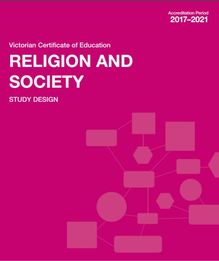Unit 3: The Search For Meaning

Over time and across cultures humanity has sought to understand the why and how of existence. In this quest for meaning humans have consistently posed big questions of life such as: Where did we come from? Is there someone or something greater than us – an ultimate reality? What is the purpose of our existence? How should we live? Is there anything beyond death? In response to this quest for meaning, various religious, philosophical, scientific, and ideological worldviews have been developed. Religion has developed answers in the form of various beliefs and other aspects that have offered ways of establishing meaning – not only for human existence, but also for all that exists. The aspects of religion have also attempted to explain the nature of relationships between humans individually and collectively, between humans and ultimate reality and between humans and the rest of the natural world.
The beliefs of any religion are the ideas held about ultimate reality and the meaning of human existence, such as the purpose of all life and notions of the afterlife. These beliefs together with their expressions through the other aspects form the distinctive identity of a religious tradition.
In this unit students study the purposes of religion generally and then consider the religious beliefs developed by one or more than one religious tradition or denomination in response to the big questions of life. Students study how particular beliefs within one or more than one religious tradition or denomination may be expressed through the other aspects of religion, and explore how this is intended to foster meaning for adherents. Students then consider the interaction between significant life experience and religion.
Religious tradition/s or denomination/s are to be selected from one or more than one of the following religious traditions: Buddhism, Christianity, Hinduism, Islam, Judaism.
Students consider the aspects of religion on page 9 of the study design when investigating religion in general and selected religious tradition/s or denomination/s
• Beliefs
• Sacred stories
• Spaces, places, times and artifacts
• Texts
• Rituals
• Symbols
• Social structures
• Ethics
• Spiritual experiences.